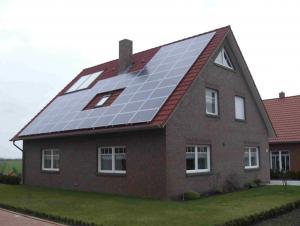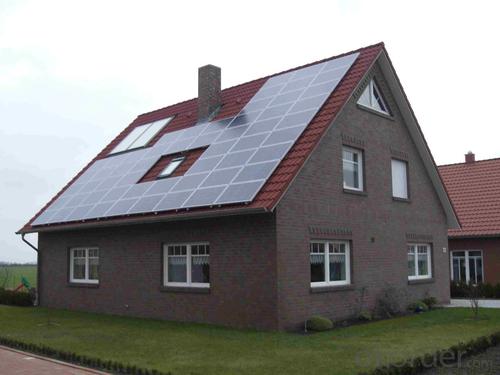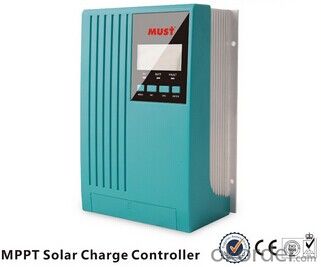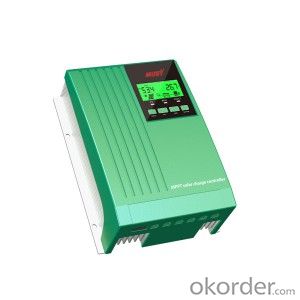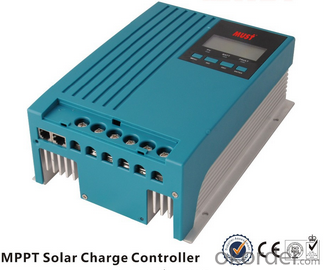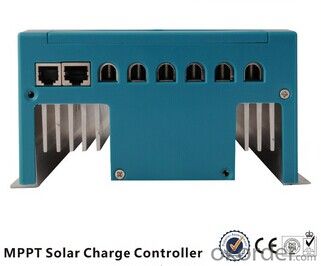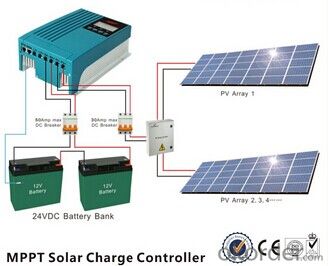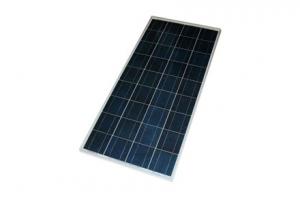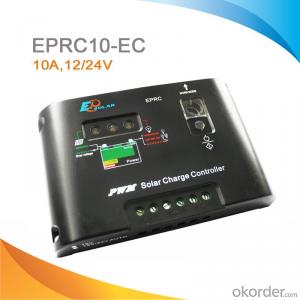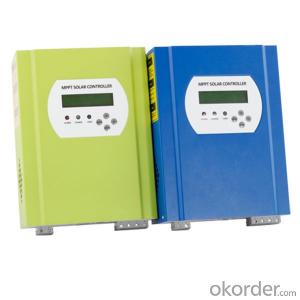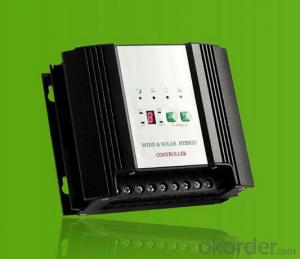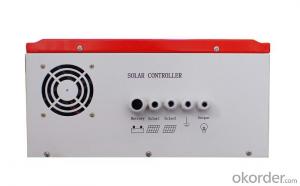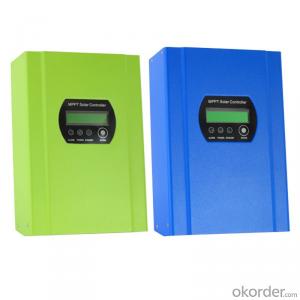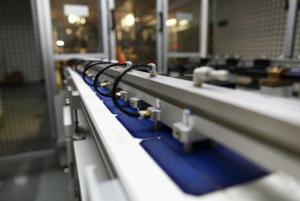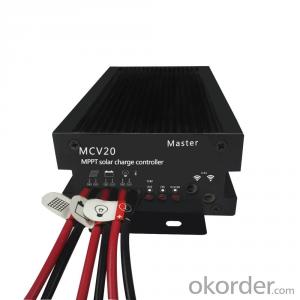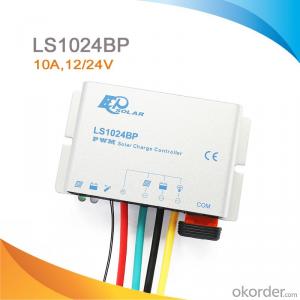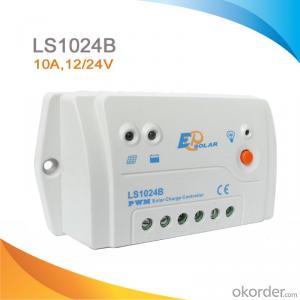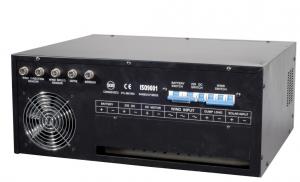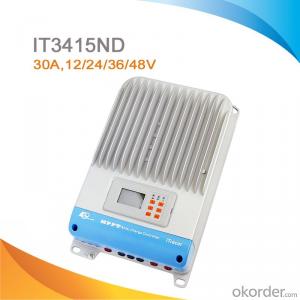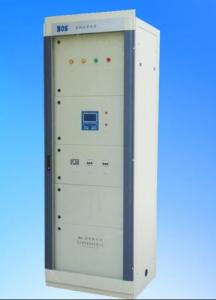Best Rv Solar Charge Controllers - MPPT Solar Charger Controller 20A/30A/40A for Solar System
- Loading Port:
- Shekou
- Payment Terms:
- TT or LC
- Min Order Qty:
- 50 pc
- Supply Capability:
- 100000 pc/month
OKorder Service Pledge
OKorder Financial Service
You Might Also Like
MPPT Solar Charger Controller 20A/30A/40A for Solar System
Power Range: 20-40A
20/30/40A MPPT solar charge controller
12V/24V auto work, MPPT efficiency>99%
peak conversion efficiency>98%
DSP processors architecture ensure high speed and performance.
1. MPPT Solar Charger Controller Characteristics:
20/30/40A MPPT solar charge controller
PV input:100V or 145V max
12V/24V auto work
MPPT efficiency>99% ,peak conversion efficiency>98%
DSP processors architecture ensure high speed and performance
Four-stages charging method
Protection: PV array short circuit, PV reverse polarity, battery reverse polarity, over charging, output short circuit
2. MPPT Solar Charger Controller specifications:
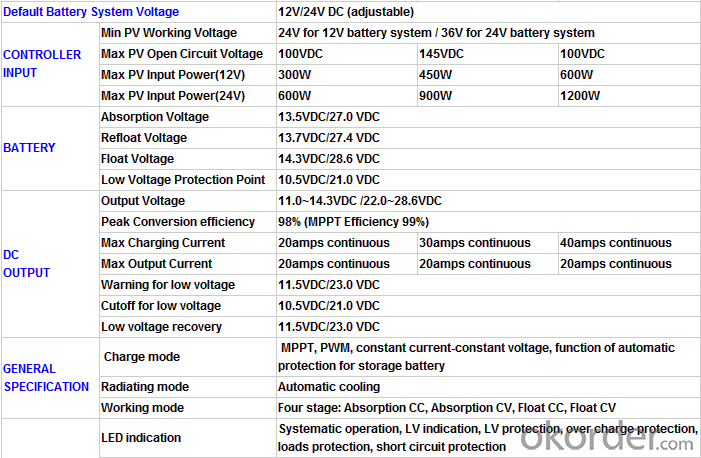
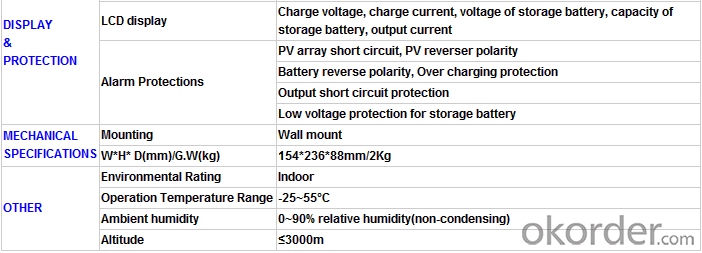
3. MPPT Solar Charger Controller Production Line:
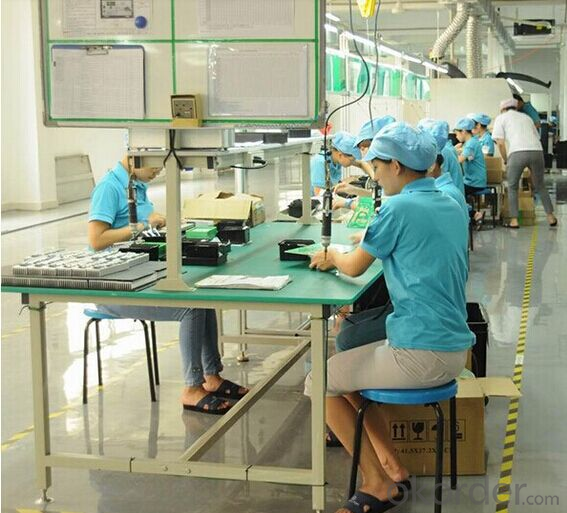
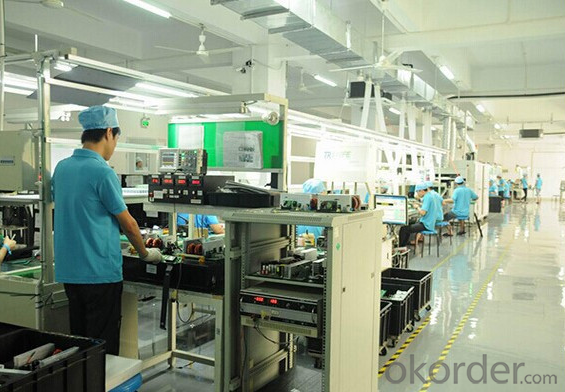
4. MPPT Solar Charge Controller Package:

5. MPPT Solar Charger Controller FAQ:
We have organized several common questions for our clients, may help you sincerely:
1. How to choose a right solar controller?
Tell us your demand, then our sales will recommend a suitable one to you.
2. What is the solar inverter warranty?
Our product warranty is valid for 12 months after delivery. We undertake to repair any malfunctioned units due to defective components of inadequate workmanship ,but specially expecting any defects resulting from normal wear and tear of improper use of the products.
3. How long can we receive the product after purchase?
a.sample orders will be delivered from our factory within 7working days .
b.General orders(under 2000pcs) will be delivered from our factory within 25 working days.
c. Bulk orders (over 2000pcs )will be delivered from our factory within 35 working days at most
4. What is the payment term?
T/T (Telegraphic transfer) / Letter of credit
- Q: Can a solar controller be used with solar-powered indoor security systems?
- Yes, a solar controller can be used with solar-powered indoor security systems. A solar controller is responsible for managing and regulating the power coming from the solar panels to the connected devices or batteries. In the case of solar-powered indoor security systems, a solar controller can be used to ensure that the solar panels generate enough power to keep the security system running efficiently. The solar controller will monitor the power output from the panels and adjust the voltage and current to match the requirements of the security system. This ensures that the system receives a steady and reliable power supply, even during periods of low sunlight or fluctuating weather conditions. So, by using a solar controller, solar-powered indoor security systems can operate effectively and provide continuous surveillance without the need for external power sources.
- Q: Can a solar controller be used with solar panels in parallel or series configuration?
- Yes, a solar controller can be used with solar panels in both parallel and series configurations. The purpose of a solar controller is to regulate the flow of energy from the solar panels to the battery or load. It ensures that the battery is not overcharged or damaged by controlling the voltage and current coming from the solar panels. In a parallel configuration, multiple solar panels are connected to the solar controller by wiring the positive terminals together and the negative terminals together. This configuration increases the current capacity of the system while keeping the voltage constant. The solar controller will still regulate the overall voltage and current to protect the battery. In a series configuration, multiple solar panels are connected to the solar controller by wiring the positive terminal of one panel to the negative terminal of the next panel, and so on. This configuration increases the voltage capacity of the system while keeping the current constant. The solar controller will regulate the overall voltage and current to ensure the battery is not overcharged. In both configurations, the solar controller is essential for proper charging and protection of the battery. It monitors the voltage and current coming from the solar panels and adjusts the charging parameters accordingly. Therefore, whether the solar panels are connected in parallel or series, a solar controller is necessary to optimize the charging process and ensure the longevity of the battery.
- Q: Can a solar controller be used with different types of solar batteries?
- Yes, a solar controller can be used with different types of solar batteries as long as the voltage and charging parameters are compatible with the specific battery type. However, it is important to ensure that the controller is designed to support the specific chemistry and requirements of the battery to optimize its performance and lifespan.
- Q: Can a solar controller be used with a solar-powered GPS tracker?
- Yes, a solar controller can be used with a solar-powered GPS tracker. A solar controller helps regulate the charging and discharging of the battery by optimizing the power generated from the solar panels. This ensures efficient energy management and extends the battery life of the GPS tracker, making it an ideal companion for solar-powered devices.
- Q: How does a solar controller handle variations in solar panel degradation?
- A solar controller handles variations in solar panel degradation by continuously monitoring the output of the solar panels and adjusting the charging parameters accordingly. It uses advanced algorithms to detect any decrease in performance due to degradation and compensates by optimizing the charging current and voltage to ensure optimal energy production and battery charging. This helps to maximize the lifespan of the solar panels and maintain their efficiency over time.
- Q: How does a solar controller handle load control for powering other devices?
- A solar controller handles load control for powering other devices by regulating the power flow from the solar panels to the devices. It monitors the battery voltage and adjusts the charging and discharging process accordingly to ensure that the connected devices receive the appropriate amount of power. This prevents overcharging or discharging of the battery and protects the devices from potential damage.
- Q: Can a solar controller handle fluctuations in solar panel output?
- Yes, a solar controller is designed to handle fluctuations in solar panel output. It regulates the voltage and current from the solar panels to ensure a consistent and stable charge to the battery or load. Additionally, it protects the system from overcharging or undercharging, making it capable of handling varying outputs from the panels.
- Q: What is the boost charging mode of a solar controller?
- The boost charging mode of a solar controller is a charging stage that provides a higher voltage to the battery in order to fully charge it. It is typically used when the battery's voltage is low or when it needs a quick recharge to reach its maximum capacity.
- Q: What is the maximum charging time a solar controller can handle?
- The maximum charging time a solar controller can handle depends on the specific model and its capabilities. Typically, solar controllers can handle charging for extended periods, ranging from several hours to even days, depending on the capacity and design of the controller.
- Q: Can a solar controller be used with a solar air conditioning system?
- Yes, a solar controller can be used with a solar air conditioning system. A solar controller helps regulate and control the flow of energy from solar panels to various components of a solar system, including air conditioning units. By managing the power output and optimizing energy usage, a solar controller can effectively integrate with a solar air conditioning system to maximize efficiency and reduce reliance on traditional energy sources.
Send your message to us
Best Rv Solar Charge Controllers - MPPT Solar Charger Controller 20A/30A/40A for Solar System
- Loading Port:
- Shekou
- Payment Terms:
- TT or LC
- Min Order Qty:
- 50 pc
- Supply Capability:
- 100000 pc/month
OKorder Service Pledge
OKorder Financial Service
Similar products
Hot products
Hot Searches
Related keywords
